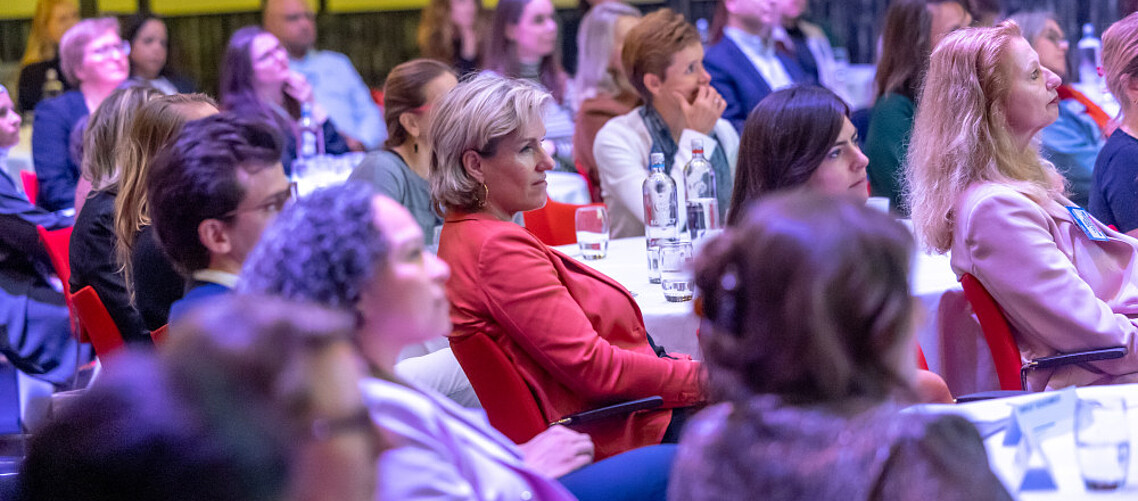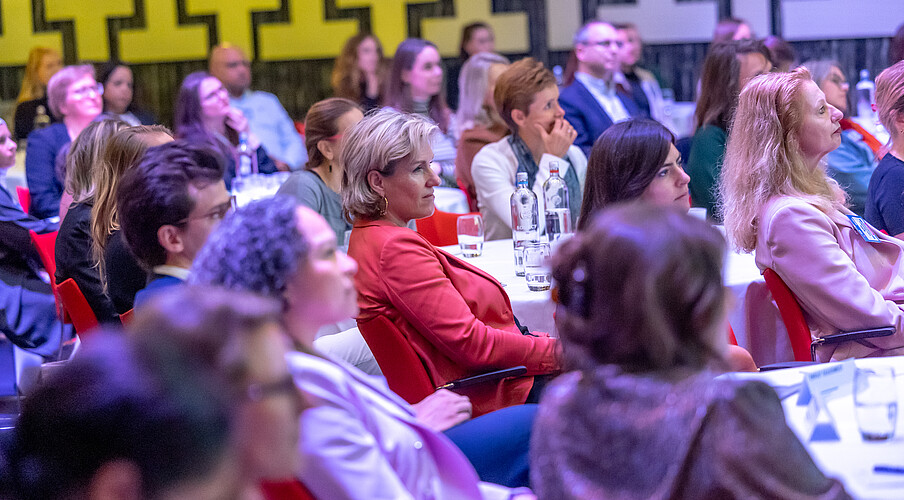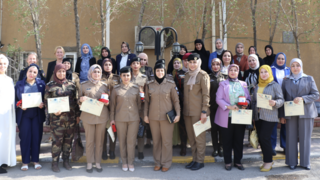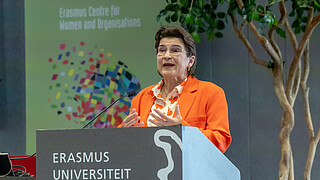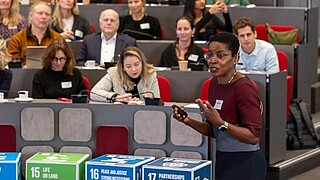Keynote addresses from adventurer and storyteller Laura Killingbeck, medical ethics expert Dr Hafez Ismaili M’hamdi, and pioneering cardiologist Professor Angela Maas highlighted the multi-faceted nature of inclusion and its critical role in addressing systemic inequities.
In her opening remarks, ECWO’s executive director Professor Hanneke Takkenberg, alongside assistant director Dorothy Grandia, set the stage with a powerful call to action. “When it comes to big challenges like the SDGs, they are all interconnected. Women suffer disproportionately from inequalities – whether in energy poverty or healthcare access. Women are part of the solution, and we must push for female leadership to address these challenges effectively,” said Prof. Takkenberg.
A holistic view of inclusion
Laura Killingbeck captivated the audience with a reflection on patriarchy’s harmful impact on society and its reinforcement of rigid gender roles. Through anecdotes of solo travel and community-building, she emphasised the need to dismantle oppressive systems and embrace both ‘masculine’ and ‘feminine’ traits as shared human qualities. Her poignant message urged attendees to foster mutual safety and connection, offering hope for a more inclusive and equitable future.
Shifting the focus to healthcare, Dr Hafez Ismaili M’hamdi highlighted the stark health disparities driven by socio-economic conditions. Advocating for systemic reform, he underscored the importance of diverse representation in healthcare to ensure equity and inspire identity formation. “The lack of inclusion is detrimental to our health and the ability to deliver it. Inclusion must be felt emotionally to drive meaningful change,” he stated.
The day’s final keynote by Professor Angela Maas spotlighted the persistent women’s health gap, particularly in cardiology. Maas traced the roots of male-dominated medical practices and their consequences, while celebrating recent strides in reforming guidelines. “We must rebuild medicine to serve all equally,” she declared, outlining actionable steps to integrate gender-specific education, diverse leadership, and interdisciplinary collaboration.
Interactive engagement and practical insights
The conference featured guided dialogues led by Professor Wiley Davi, who encouraged participants to embrace authenticity and discomfort as cornerstones of inclusive leadership. Small group discussions explored moments of belonging and exclusion, offering practical insights into creating workplaces where individuals can fully express themselves.
Afternoon breakout sessions covered a range of critical topics, from measuring inclusion to fostering allyship in male-dominated fields. Highlights included RSM’s Maria Carmen Punzi’s session on life-stage inclusivity and NN’s workshop on empowering women in IT, which stressed the importance of male allies in addressing gender-biased performance evaluations.
Honouring inspirational leadership
Another highlight of the event was the presentation of the Dianne Bevelander Prize 2024 to Georgina Lara Booth, recognising her exceptional contributions to gender equality. The award was awarded by Dr Natalie Cleton, daughter of the late Professor Dianne Bevelander, who also announced the launch of the Dianne Bevelander Memorial Fund to support women’s professional growth through education.
A call for continued collaboration
The conference closed with an impassioned message from ECWO’s Dorothy Grandia: “This is not the end of the discussion—it is the beginning. Let’s take a collaborative approach to creating inclusive organisations. Together, we can drive meaningful change.”
The ECWO 10th anniversary conference underscored the urgency of inclusion and showcased a roadmap for transformative action across sectors. It reaffirmed the centre’s commitment to fostering leadership, equity, and innovation for a better, more inclusive world.
Read the conference report here.
About ECWO
The Erasmus Centre for Women and Organisations (ECWO) is committed to fostering inclusion. Its founding purpose in 2014 was to empower women and to create a level playing field by building communities for organisational change. A decade later ECWO has expanded its perspective to embrace a wider vision of inclusive prosperity in the world. Its new mission is to create a sense of belonging for everyone within organisations through diversity, equity, and inclusion (DEI), anchored in social safety. ECWO strives for settings where everyone feels valued, respected and supported. It conducts research and produces evidence-led educational programmes, events, coaching, advocacy and advisory services. ECWO stays true to its roots, and has evolved to recognise that achieving true inclusion and equity requires encompassing all, regardless of gender or identity.
